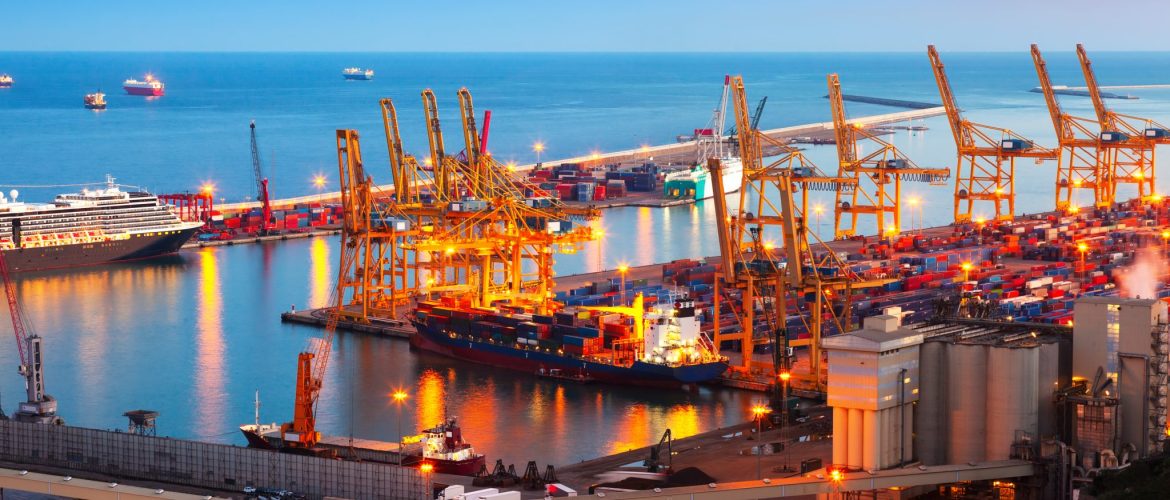It is well known that the oil industry is the backbone of Oman’s economic development. The current fluctuations in the oil sector can make a heavy impact on the economic growth of the country. To support this imbalance in the oil sector, the Sultanate of Oman is keenly concentrating on diversifying the economy by developing the non-oil based sectors. While talking about the non-oil based sectors, the substantial growth of transportation and logistics fields in Oman is momentous. The potentiality to compete with the key players in the industry have made it a prominent logistics hub of the Middle East. With an aim to reduce the over-reliance on the oil sector, Oman will now focus on developing the logistics to achieve economic growth.
Logistics is already a major contributor to Oman’s economy. But still, there is a long way to achieve the global logistics hub title. Several challenges are back dropping Oman from establishing a global powerhouse in logistics. The poor land connectivity with other GCC countries and inadequacy in the port capacity are lowering the opportunities on Oman. Though the urban areas of Oman possess sufficient infrastructure facilities, the rural areas lack proper infrastructure for logistics and also the shortage of skilled labours are also having a negative effect on the logistics sector of Oman. To address these issues, Oman is looking forward to expanding the overall transportation network – road, air and ports.
The expansion in the air transport network is done in compilation with the Oman Aviation Group (OAG) which have announced the launch of a dedicated cargo corridor. If implemented successfully, the air cargo corridor will aid the export outflow of the country. With an aim to increase the volume of air cargo goods by improving air freight capacity and to boost the cargo service connectivity between the free economic zones and the exporting sector, the proposed corridor is sure to hike the logistics sector of the country. On the other hand, moves are taken to sign open skies agreement with the European, Asian and African countries to attain a reduction in customs control and the streamlining of processing procedures.
Oman maintains a high-quality road infrastructure throughout the country. Oman’s Road infrastructure has attained top-notch in the GCC. High-quality roads ease the movement of people as well as goods within Oman and to the neighbouring countries which in effect aids to economic growth. While considering the road transportation development across Oman, several large scale road projects connecting neighbouring countries, major cities, air and seaports have been planned which is sure to uplift the road transport network. Oman is taking remarkable steps for the enhancement of road transport network which will reinforce the countries potential as the global logistics hub.
Oman is also giving prior importance in the development of the rail network. Plans are adopted to establish rail networks linking the GCC countries. A 400 km railroad connecting the mineral mines of Salalah with Duqm has already been announced by Oman Rail.
Seaports in Oman have a major influence in the development of the country as the global logistics hub. Hence Oman is initiating the development of new ports which subsequently enhances the logistics sector. To attain this objective, the Oman Government is collaborating with the Private sectors and also the Government have offered several business incentives to attract the growth of ports. The main Port of Oman is situated in Sohar, which is midway between Muscat, Dubai and Salalah. Oman government and the Consortium of Antwerp of Belgium have recently developed a port at Duqm which is one of the major steps in the development of the port sector. Being the pioneers in sea transportation, Oman’s initiative in the development of seaports benefits the emerging logistics hub.
With an objective of becoming the global logistics hub, Oman Logistics centre has developed a program named The Sultanate of Oman Logistics Strategy 2040 (SOLS 2040). SOLS 2040 proposes strategies to develop the logistics sector of Oman thereby enhancing the contribution to the economic growth, employment growth and job creation, market share of goods and to change the global perspective of Oman.
The potentiality of Oman to develop as a global logistics hub is boundless because of its geographic location. The future of logistics sector of Oman is extensively strong because it links both the east and west sides of the world. Strategic development of the overall infrastructure, transportation and logistics sectors of Oman can achieve economic diversification which in turn raises the country to be the global logistics hub.










